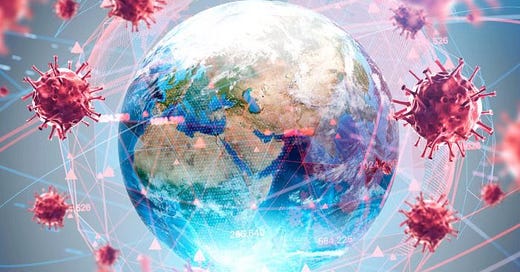Stormy Seas
Acharya "national interests ahead of international cooperation", 尊敬的先生们女士们, Dutch warship stirs South China Sea, "the path to San Francisco" will not be an easy one, and there's no self-driving to it"
UPDATE: In responding to COVID-19, nations—large and small, democratic and authoritarian—have predictably behaved in similar ways. They have put sovereignty, borders, and their national interests ahead of international cooperation. This phenomenon proved prominent for the United States and China, the two strongest powers, and with small nations, such a…




